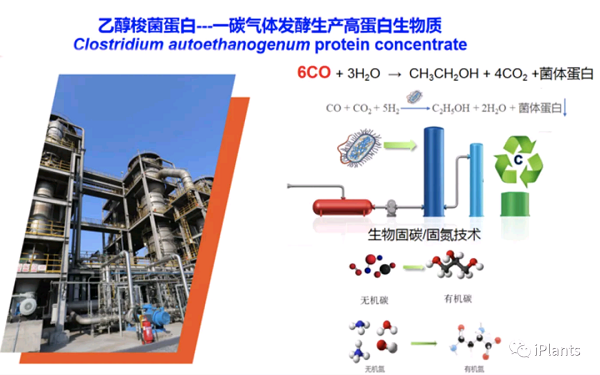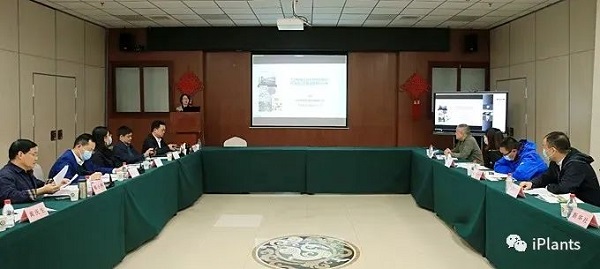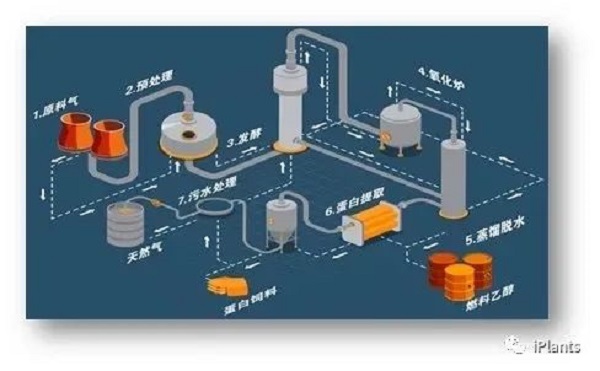
Exhibition time: 17-19 March, 2026 Shanghai, China
 中文
中文

Exhibition time: 17-19 March, 2026 Shanghai, China
 中文
中文

After years of research and tackling key problems, Chinese scientists have broken through the limitations of natural photosynthetic carbon and nitrogen fixation systems using solar energy and slow reaction speed, broke through the space-time constraints of natural protein plant synthesis, realized the synthesis from carbon monoxide to protein for the first time in the world, and created a world miracle that the highest rate of protein synthesis in 22 second industrialization is 85%, And has formed a 10000 ton industrial production capacity.

On October 30, the feed Research Institute of the Chinese Academy of Agricultural Sciences announced that China has made a major breakthrough in the field of one carbon biosynthesis: the synthesis of carbon monoxide to protein has been realized for the first time in the world, and a 10000 ton industrial capacity has been formed. This breaks through the space-time limit of natural protein plant synthesis, provides a powerful tool for China to make up for the biggest weakness of China's agriculture - the high external dependence of feed protein, and is of great significance to promote the realization of the national "double carbon" goal.
Dr. Xue min, chief scientist of the project and researcher of feed Institute of Chinese Academy of Agricultural Sciences, introduced that the natural synthesis of protein usually requires the formation of carbohydrate sugars by natural photosynthesis in plants or specific microorganisms with nitrogen fixation function in plants, and then through multiple complex biological transformations and enzymatic reactions through the tricarboxylic acid cycle to form amino acids required for protein synthesis, Then synthesized into protein. It involves complex life processes such as genetic expression, biochemical synthesis and physiological regulation. The reaction is slow, the conversion efficiency of material and energy is low, and the final accumulated protein content is low.

photo: Production process of Clostridium ethanol protein.
She stressed that under artificial conditions, the large-scale biosynthesis of protein by using natural carbon monoxide and nitrogen sources (ammonia) is not subject to this limit. Therefore, it has long been regarded by the international academic community as a revolutionary frontier science and technology affecting the development of human civilization and the cognition of life phenomena.
After years of joint research, the feed Institute of Chinese Academy of Agricultural Sciences and Beijing Shoulang Biotechnology Co., Ltd. have broken through the core key technology of Clostridium ethanol protein, greatly improved the reaction speed (22 second synthesis), and set a world record of the highest protein yield of 85% in the next step under the conditions of industrialization.
The research takes industrial tail gas containing carbon monoxide and carbon dioxide and ammonia as the main raw materials to "create something out of nothing" to manufacture a new feed protein resource Clostridium ethanol protein, convert inorganic nitrogen and carbon into organic nitrogen and carbon, realize independent innovation from 0 to 1, and have completely independent intellectual property rights.
Based on the industrialized production of 10 million tons of Clostridium ethanol protein (protein content 83%), which is equivalent to 28 million tons of imported soybeans (protein content 30%), it has opened up a new way to produce high-quality feed protein from low-cost non-traditional animal and plant resources, which can reduce 250 million tons of carbon dioxide and save 1 billion mu of cultivated land (based on the average yield of 300 kg of soybean per mu).
Source: Iplant
